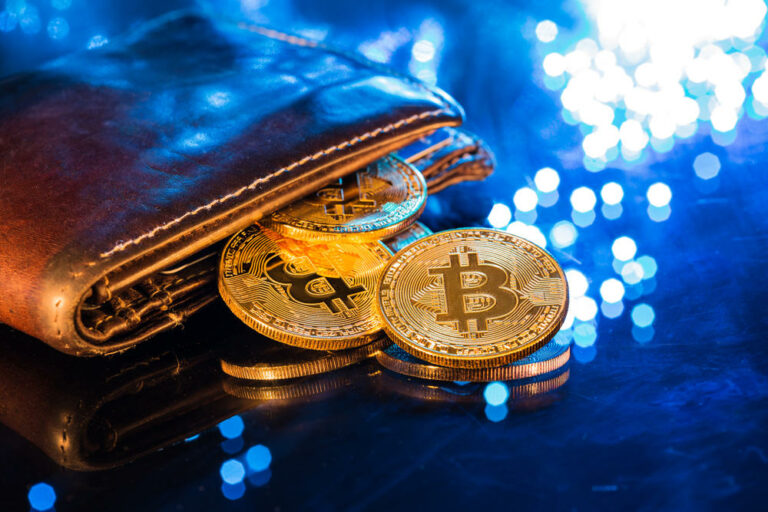Cryptocurrency is a type of digital currency that operates independently of a central bank. It has gained a lot of popularity in recent years, with more and more people investing in it.
But as with any investment, it’s important to approach cryptocurrency with caution and take the necessary steps to buy and sell it safely and securely.
In this article, we will provide a comprehensive guide on how to buy and sell cryptocurrency securely.
1. Understand the Basics of Cryptocurrency
Before investing in cryptocurrency, it is essential to understand the basics of how it works. Cryptocurrency operates using blockchain technology, which is a decentralized ledger that records every transaction made. Cryptocurrencies can be bought and sold on exchanges, which are online platforms that allow users to trade cryptocurrencies with one another.
2. Choose a Reputable Exchange
Choosing a reputable exchange is essential for buying and selling cryptocurrency safely. Look for exchanges that are well-established and have a good reputation in the industry. Research their security measures, such as two-factor authentication and cold storage of funds. Additionally, look for an exchange that is user-friendly and has good customer support.
Recommended Cryptocurrency Exchanges: Binance, KuCoin, Poloniex, Pionex, Remitano, and Paxful.
3. Set Up Your Account and Verify Your Identity
To buy and sell cryptocurrency on an exchange, you will need to set up an account and verify your identity. This is to comply with anti-money laundering (AML) and know your customer (KYC) regulations. To verify your identity, you will typically need to provide your name, address, and a government-issued ID.
4. Choose Your Cryptocurrency and Wallet
After setting up your account, choose the cryptocurrency you want to buy and select a wallet to store it. Wallets are digital storage devices that hold your cryptocurrency. There are two types of wallets: hot wallets and cold wallets. Hot wallets are connected to the internet and are more vulnerable to hacking. Cold wallets are offline and are considered more secure.
5. Fund Your Account
Once you have chosen your cryptocurrency and wallet, you will need to fund your account. Exchanges typically accept bank transfers, credit cards, and debit cards as payment methods. It is important to note that different exchanges have different fees for funding your account, so be sure to research the fees before making a deposit.
6. Buy Your Cryptocurrency
After funding your account, you can buy your cryptocurrency. This is typically done through a trading platform on the exchange. Be sure to research the current market value of the cryptocurrency you are buying to ensure you are getting a fair price.
7. Monitor Your Investment
As with any investment, it is important to monitor your cryptocurrency investment regularly. Keep an eye on the market value of your cryptocurrency and be prepared to sell if necessary. Additionally, keep your wallet secure and regularly update your passwords and other security measures.
8. Sell Your Cryptocurrency
When you are ready to sell your cryptocurrency, you can do so through the exchange. The process is similar to buying cryptocurrency, but in reverse. Be sure to research the current market value of your cryptocurrency before selling to ensure you are getting a fair price.
Read: 5 Reasons Why Cryptocurrency is the Future of Money
Frequently Asked Questions About Cryptocurrency
1. Is it safe to invest in cryptocurrency?
Like any investment, there is risk involved in investing in cryptocurrency. However, by taking the necessary steps to buy and sell it safely and securely, you can minimize the risk.
2. How do I choose the right cryptocurrency to invest in?
Research the different cryptocurrencies available and their market value. Look for cryptocurrencies with a good reputation and a strong user base.
3. How do I keep my cryptocurrency wallet?
To keep your cryptocurrency wallet secure, there are several best practices you should follow. Firstly, you should use a strong and unique password for your wallet that is not used for any other online accounts. This will make it more difficult for hackers to gain access to your wallet.
Secondly, you should use two-factor authentication (2FA) to add an extra layer of security to your wallet. 2FA requires you to enter a code generated by an authentication app or sent to your phone via SMS, in addition to your password, to access your wallet.
Thirdly, you should ensure that you keep your wallet software and any associated apps up to date with the latest security patches and updates. This will help to prevent any vulnerabilities from being exploited by hackers.
Fourthly, you should keep your private keys, which are used to access and transfer your cryptocurrencies, offline and in a secure location. This could be in the form of a hardware wallet, such as a Ledger or Trezor device, or by storing your keys on a piece of paper that is kept in a safe location.
Finally, you should be cautious when using public Wi-Fi networks, as these can be easily intercepted by hackers. Instead, use a secure and trusted internet connection when accessing your wallet.
By following these best practices, you can help to keep your cryptocurrency wallet safe and secure. It is important to be vigilant and take steps to protect your digital assets, as the decentralized nature of cryptocurrencies means that they cannot be recovered if they are lost or stolen.
4. What is the most secure way to store cryptocurrency?
The most secure way to store cryptocurrency is by using a hardware wallet, which keeps your private keys offline and in a secure location.
5. Is it safe to store cryptocurrency on an exchange?
Storing cryptocurrency on an exchange is not recommended, as exchanges are a common target for hackers. Instead, you should store your cryptocurrency in a secure wallet that you control.
6. What is two-factor authentication (2FA)?
Two-factor authentication (2FA) is a security process that requires you to provide two forms of identification to access your account, typically a password and a code generated by an authentication app or sent to your phone via SMS.
7. Can I recover my cryptocurrency if I lose my private keys?
No, if you lose your private keys, your cryptocurrency cannot be recovered. It is important to keep your private keys safe and secure.
8. Should I use the same password for my cryptocurrency wallet as my other online accounts?
No, you should use a unique and strong password for your cryptocurrency wallet that is not used for any other online accounts to reduce the risk of hacking.



